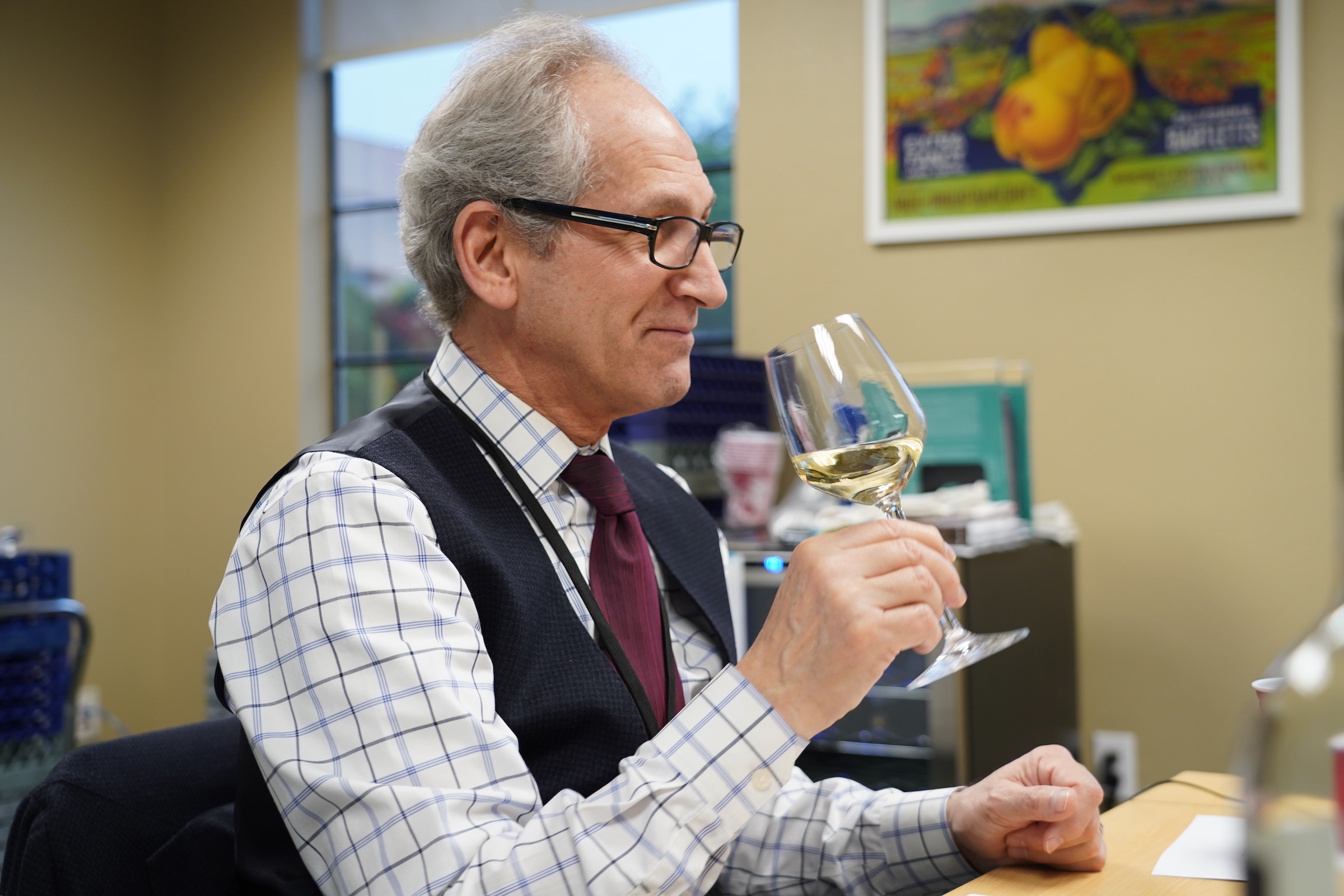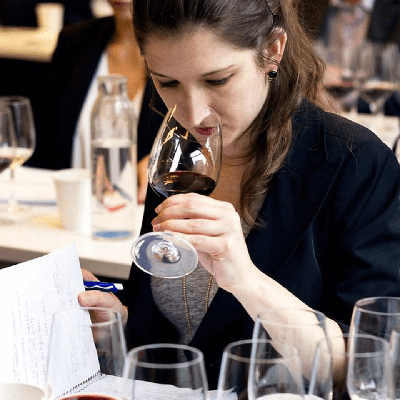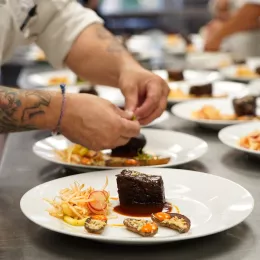When asked, “How do I become a sommelier,” ICE Dean of Wine and Beverage Studies, Scott Carney (MS) and ICE LA Lead Instructor of Wine Studies, Paul Sherman (MS Candidate) had several thoughts.
While some think the role of a sommelier is simply understanding wine flavor and composition — and beyond that, food pairings — those in the business know the truth: Being a sommelier is also about storytelling and sales. More specifically, it's about telling (and then then selling) a wine's story.
“It’s not just mere appreciation of wine," says Scott Carney, Master Sommelier and ICE Dean of Wine and Beverage Studies. "There’s a financial context that can’t be left by the wayside just by being a good taster.”
Paul Sherman, Advanced Sommelier and Lead Instructor of Wine Studies at ICE's LA Campus, harkens back to the origin of the role. "The definition of sommelier has broadened over time," he says, "but it was always a service-oriented role where you were presenting wines as the keeper of a private cellar that you were maintaining for your lord or king... and then it expanded into restaurants to maintain the cellar and create profits."
The bottom line, he points out, is "you have to earn your keep.”

In the modern world, there are a variety of career opportunities that fall under the purview of a sommelier role. Whether you work in fine dining, wine stores or wholesalers, the purpose of sommelier training is enabling you to speak in the language of wine.
According to Scott, a sommelier certification from the Court of Master Sommeliers cues to potential employers "that you've put your head down and learned a certain vocabulary, a language to talk about wine and sell wine."
"You've done the work," he adds, "and become adept at listening to yourself and the wine — and found words to describe it."
In short, you recognize that the job is selling (versus mere appreciation of wine).
How To Become a Sommelier
So how does one actually become a wine sommelier?
"You need to be trained in some way…I can't stress enough that you have to learn to taste and learn to trust yourself,” Scott says.
This is where ICE’s Intensive Sommelier Training course comes into play. Referred to by the instructors as a "box of information," the sommelier course is designed to help develop your palate by teaching you not just the structural dimensions of wine that are universal — like color, acidity, alcohol content and sweetness — but to hone in on what the deductive tasting method rubric refers to as “other.” These are the markers that are unique to the taster which come from personal experience and can only be learned, in Paul's words, “by the doing."
"You have to taste constantly to build that recognition," he says. "The more you smell and taste something, the more your body is able to retain that sense. Sense memory is invaluable and that’s not something you can learn by reading about it in a book.”

Possible Sommelier Career Paths
Once that training is complete, the career trajectory of a sommelier, as with most careers, can take different routes.
With decades of experience building relationships across the industry, Scott frequently reminds sommelier certification hopefuls that no work is wasted.
“People come to me saying, 'I’m in tech,' or 'I’m in baking,' or 'I’m in marketing, and I’ve always liked wine so I thought this might be a way to go'… and I say ‘absolutely,’" Scott says.
Scott believes that your past experiences can be incorporated into wine education. For example:
- Writers may be able to write for a wine periodical.
- People with financial work experience may be able to work in wine selling on a micro or macro level.
- Sales or marketing professionals can apply the same skills to a role as a purveyor or wine store owner.
Many students also come from within the business, such as bartenders who want to improve their wine knowledge in order to move to a beverage manager position, or waiters looking to take on the additional responsibilities of wine selection and service. For some, this means finding a company they align with and proving their work ethic while awaiting the opportunity to join the sommelier team.
More Wine Stories:How to Pair Wine with Vegetables
In all of these circumstances what cannot be oversold is the value of a network. With instructors and guest lecturers coming into class regularly, students of the Intensive Sommelier Training course have access to building these relationships in their classroom. In addition, volunteering to pour for tasting events increases their exposure to potential employers.
Scott's ethos? “Sometimes, you’re one conversation away from a job.”
Regardless of the path one takes within the beverage world, exposure to sommelier continuing education and the formal recognition of a Court of Master Sommeliers, Americas sommelier certification is a key stepping stone into the rewarding world of a career in wine and beverage.
"The most important thing is to enjoy the act of learning,” Paul says.







